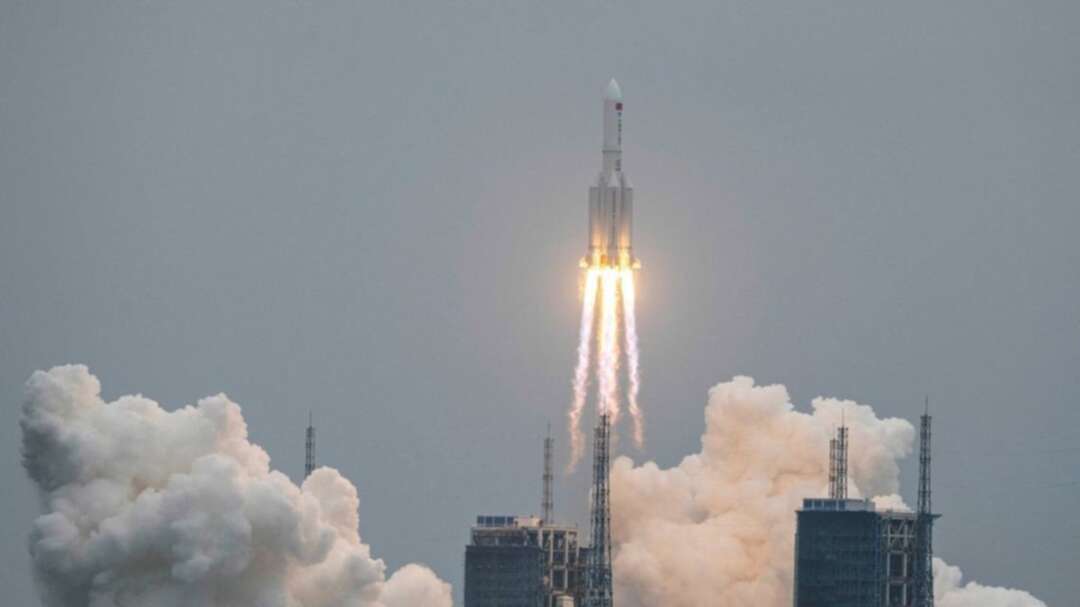-
No reported damage in Philippines from Chinese rocket debris

A Filipino official said Monday (July 31), there was no reported damage in a western Philippine region where debris from a rocket that boosted part of China’s new space station reportedly fell.
Marc Talampas, an official with the Philippine Space Agency, said that authorities were advised to search for the wreckage of the missile, which may have fallen into sea waters off Palawan province, the Arabnews reported, citing the Associated Press.
Talampas told The Associated Press: “We are monitoring the situation and have also issued an advisory to the public to be vigilant, avoid contact with any suspected floating debris and to report to local authorities immediately.”
Most of the last stage of the Long March-5B rocket has burned up after re-entering the atmosphere, the China Manned Space Agency said on Sunday (July 31). It would allow the booster to fall without guidance, it said.
The Chinese agency announcement gave no details of whether remaining debris fell on land or sea but said the “landing area” was at 119 degrees east longitude and 9.1 degrees north latitude. That is in waters southeast of Palawan’s capital city of Puerto Princesa.

The Philippine Space Agency did not receive any notifications from its Chinese counterpart about the rocket debris.
China has faced criticism for allowing rocket stages to fall to Earth uncontrolled twice before.
NASA accused Beijing last year of “failing to meet responsible standards regarding their space debris” after parts of a Chinese rocket landed in the Indian Ocean.
Oil prices decline as China renews COVID-19 restrictions
The country’s first space station, Tiangong-1, crashed into the Pacific Ocean in 2016 after Beijing confirmed it lost control. An 18-ton rocket fell uncontrolled in May 2020.
China also faced criticism after using a missile to destroy one of its defunct weather satellites in 2007, creating a field of debris that other governments said might jeopardize other satellites.
The July 24 launch of the Long March-5B, China’s most-powerful rocket, carried the Wentian laboratory into orbit. It was attached to the Tianhe main module, where three astronauts live.
China's Xi Jinping criticises sanctions 'abuse', Russia's Putin scolds the West
The remains of a separate cargo spacecraft that serviced the station fell into a predetermined area of the South Pacific after most of it burned up on reentry, the Chinese government announced earlier.
Source: arabnews
You May Also Like
Popular Posts
Caricature
BENEFIT Sponsors BuildHer...
- April 23, 2025
BENEFIT, the Kingdom’s innovator and leading company in Fintech and electronic financial transactions service, has sponsored the BuildHer CityHack 2025 Hackathon, a two-day event spearheaded by the College of Engineering and Technology at the Royal University for Women (RUW).
Aimed at secondary school students, the event brought together a distinguished group of academic professionals and technology experts to mentor and inspire young participants.
More than 100 high school students from across the Kingdom of Bahrain took part in the hackathon, which featured an intensive programme of training workshops and hands-on sessions. These activities were tailored to enhance participants’ critical thinking, collaborative problem-solving, and team-building capabilities, while also encouraging the development of practical and sustainable solutions to contemporary challenges using modern technological tools.
BENEFIT’s Chief Executive Mr. Abdulwahed AlJanahi, commented: “Our support for this educational hackathon reflects our long-term strategic vision to nurture the talents of emerging national youth and empower the next generation of accomplished female leaders in technology. By fostering creativity and innovation, we aim to contribute meaningfully to Bahrain’s comprehensive development goals and align with the aspirations outlined in the Kingdom’s Vision 2030—an ambition in which BENEFIT plays a central role.”
Professor Riyadh Yousif Hamzah, President of the Royal University for Women, commented: “This initiative reflects our commitment to advancing women in STEM fields. We're cultivating a generation of creative, solution-driven female leaders who will drive national development. Our partnership with BENEFIT exemplifies the powerful synergy between academia and private sector in supporting educational innovation.”
Hanan Abdulla Hasan, Senior Manager, PR & Communication at BENEFIT, said: “We are honoured to collaborate with RUW in supporting this remarkable technology-focused event. It highlights our commitment to social responsibility, and our ongoing efforts to enhance the digital and innovation capabilities of young Bahraini women and foster their ability to harness technological tools in the service of a smarter, more sustainable future.”
For his part, Dr. Humam ElAgha, Acting Dean of the College of Engineering and Technology at the University, said: “BuildHer CityHack 2025 embodies our hands-on approach to education. By tackling real-world problems through creative thinking and sustainable solutions, we're preparing women to thrive in the knowledge economy – a cornerstone of the University's vision.”
opinion
Report
ads
Newsletter
Subscribe to our mailing list to get the new updates!






















